This week’s Board of Rabbis of Greater Philadelphia Jewish Exponent Shabbat D’var Torah column: “‘With All Your Heart and Soul’ and Single-Tasking.” Am I right to guess that there are others out there who face the challenge–to simply do one thing at a time?
–Rabbi Jill Maderer
Even in Darkness it is Possible to Create Light
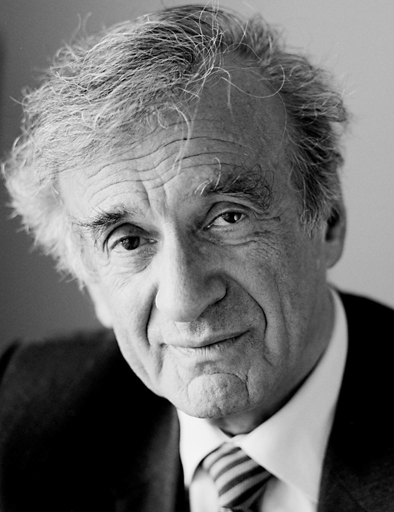 There are people whom we witness from afar, who make an imprint, and whose stories even mark the stages of our own life and growth.
There are people whom we witness from afar, who make an imprint, and whose stories even mark the stages of our own life and growth.
I have a sense that this kind of impact, that defines moments in our lives, for some of us has been discovered through our encounter with the work of Elie Weisel, zichrono livracha, of blessed memory, who died this week. I know this is true for me. I can remember where I was when I encountered the contributions of Elie Weisel, in different points in my own life, and the lessons he taught me as he appeared on my personal timeline.
Do you remember where you were when you first read the book, Night? Continue reading
Passover Resources 2016
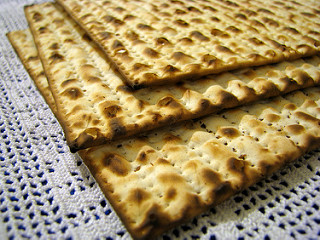 Passover is coming! Are you looking for resources? Start to eat down your bread, get your post-it’s ready if you’re preparing a seder, and check these out! A sweet Pesach to all!
Passover is coming! Are you looking for resources? Start to eat down your bread, get your post-it’s ready if you’re preparing a seder, and check these out! A sweet Pesach to all!
A family-oriented Haggadah, “Now We Are Free“.
The Four Questions, chanted by Cantor Frankel.
Social Justice ideas from HIAS PA, and a Haggadah supplement inspired by their immigration work.
Registration for the RS Second Night Seder.
More Haggadah recommendations for different ages, style, and just for study.
Learn here about the holiday of Passover.
Please add comments with your own resources and creative seder ideas!
Resources on Mental Illness and Addiction
Thank you to our RS teen, Ella Komita Moussa, for creating this great resource sheet on mental illness and addiction for our evening with Patrick Kennedy Tues., April 12, 7:00pm!
file:///C:/Users/Jill/Downloads/RS%20Lecture%20(1).pdf
Out from Mental Illness and Addiction Stigma and Into the Sun
Delivered this Shabbat in anticipation of former Congressman Patrick Kennedy’s upcoming talk at RS about mental health/addiction parity and de-stigmatization. At some point during my adolescent years, my father came home with a package and presented it to my sister and me. It was a box of 1000 red pencils, each adorned with the words, “Just say no.” With the image of a skull and crossbones right beside the slogan, on each one. Never known for his subtlety, my father’s loving gift reflected the oversimplified messages he was hearing in the 1980’s, about how to keep your children safe.
By the time my red pencils ran out, scientists, educators, therapists and advocates began to discover more about struggles involving substance abuse and beyond. What does it mean to understand the role of the genetic component to addiction? Co-occurring disorders? Or that the stigma of addiction and of mental illness which can strip away respect, dignity and compassion?
Consider the complexities of genetics, co-occurring disorders and stigma, on top of the challenges of peer pressure and temptations to escape, and the presumably well-meaning Just Say No slogan can become an obstacle. The “just” makes abstinence sound simple. Originally a response to a question a young child asked of Nancy Reagan, Just Say No, makes avoidance sound easy.
If you fail to Just Say No, because perhaps you have a disease that appears to the rest of us as a choice, we blame you you for having a character deficiency. We assume your disorder is a result of your own wrongdoing, you are choosing a harmful path, you aren’t trying hard enough, we don’t want those choices to touch us, so we isolate you. You know we are going to isolate you, so you hide your vulnerabilities and those of your family. Perhaps so much so that you delay getting care. (Assuming you can afford care.) And the cycle of stigma continues.
In a nation where the suicide rate is double the homicide rate, we need to remove obstacles to mental health care. And societal stigma does not bring people to treatment.Continue reading
Hearing Patrick Kennedy April 12: Mental Health, Addiction and Compassion in Our Community
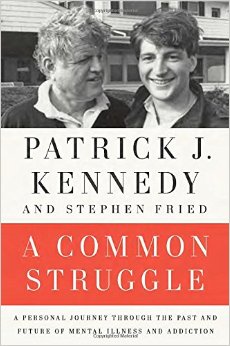 In former congressperson Patrick Kennedy’s Memoir, A Common Struggle: A Personal Journey through the Past and Future of Mental Illness and Addiction, he describes a scene that took place just after he revealed his struggles to the New York Times. There he was at a family occasion, surrounded bu relatives who were not happy about his public truth-telling. Yet, there were some exceptions. His cousin, Maria (Shriver) showed compassion to Patrick and said she thought was he was doing was fantastic.
In former congressperson Patrick Kennedy’s Memoir, A Common Struggle: A Personal Journey through the Past and Future of Mental Illness and Addiction, he describes a scene that took place just after he revealed his struggles to the New York Times. There he was at a family occasion, surrounded bu relatives who were not happy about his public truth-telling. Yet, there were some exceptions. His cousin, Maria (Shriver) showed compassion to Patrick and said she thought was he was doing was fantastic.Shema: Free Speech & The Citizen’s Freedom to Hear
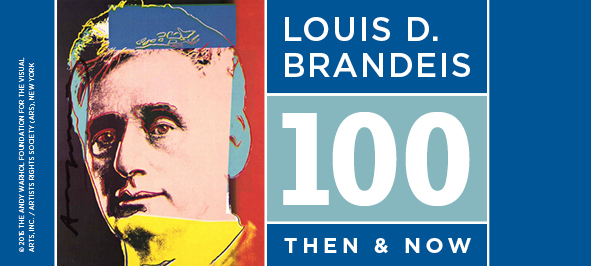 Our portion of the week, parashat New Hampshire, has gotten me thinking about democracy and free speech. When the campaign results were in on Tues. evening, I watched all of the primary speeches, victory and defeat. Maybe I’m just shmaltzy, but I’m a patriot, and I was moved by most of the candidates’ devotion to serving our country. Whether I agreed with their policies, I paid particular attention to the candidates who spoke about the way they listened to their constituents, heard the stories and experiences of every day Americans.
Our portion of the week, parashat New Hampshire, has gotten me thinking about democracy and free speech. When the campaign results were in on Tues. evening, I watched all of the primary speeches, victory and defeat. Maybe I’m just shmaltzy, but I’m a patriot, and I was moved by most of the candidates’ devotion to serving our country. Whether I agreed with their policies, I paid particular attention to the candidates who spoke about the way they listened to their constituents, heard the stories and experiences of every day Americans.
I’m not naïve; the New Hampshire primary also brings out the cynic in me. I am disillusioned by a society that claims to be a democracy, but continues to give a disproportionate voice to campaign funders, and to early season primary states. That the first two are also overwhelmingly white states, only compounds the problem. How is this nation to bring democracy to its citizens if it cannot hear their voices?
A midrash from Jewish tradition offers us an image, teaching: we were born with 2 ears and 1 mouth, in order to strive to do twice as much listening as we do talking. It’s a strange lesson for such an extroverted tradition. Yet the message is clear: listen. Shma. Listen.
And there are some in our American tradition who urge the same.
This semester, my alma mater Brandeis University, is celebrating the 100th anniversary of the appointment of Louis D. Brandeis to the United States Supreme Court. Continue reading
Choosing Gratitude
Last week, Dr. Dan Gottleib of WHYY hosted his final weekly Voices in the Family. He focused this final show on gratitude. As callers thanked Dr. Dan for giving them something– courage or patience or thanks… he responded: “I don’t give anyone anything that isn’t already there. It’s about seeing what’s already there.” (paraphrased)
Seeing what’s already there– this is Judaism’s approach to Thanksgiving. One Hebrew term for gratitude is “hakarat hatov.” The word thanks isn’t even in there. Hakarat hatov means “recognizing the good.” The good is already there. It’s our mitzvah, our sacred action to, call it out. Why is it so important to call out the good — to see what’s already there?
One response comes from Ron Lieber, a Reform Jew and the author of The Opposite of Spoiled: Raising Kids Who Are Grounded, Generous and Smart About Money. Lieber believes that saying grace is one of the single best things parents can do for their kids — no matter what god you do or don’t believe in. He explains there’s a link between gratitude and lower levels of envy and depression, because gratitude helps us to feel a sense of satisfaction, a sense of enough. Continue reading
Turning Fate into Destiny with A “Sabbath Lie”
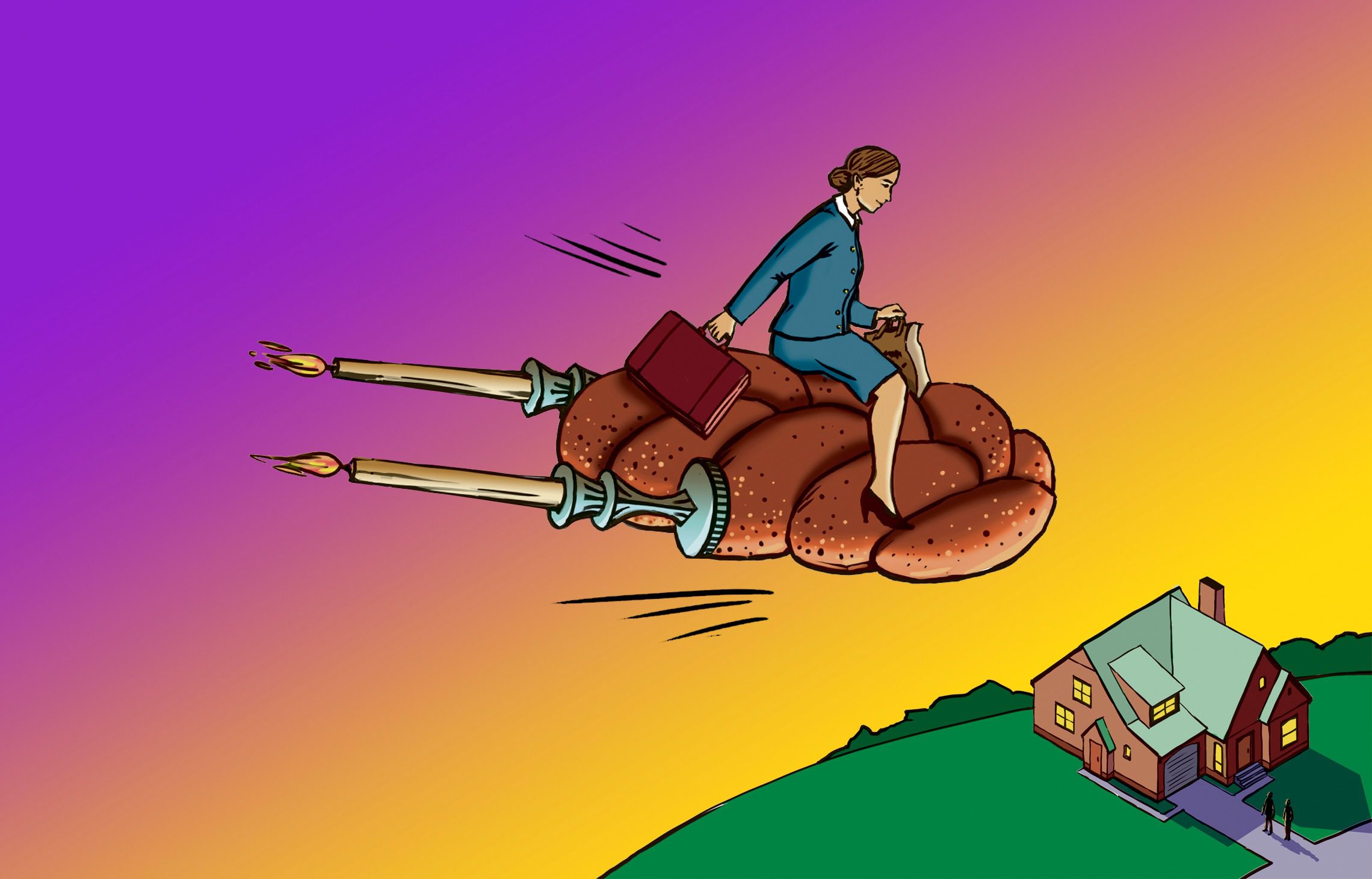 Can you see what this image, created by Anya Ulinich (speaking Sunday at RS) depicts? A woman dressed in a business suit riding a Shabbat candle-fueled challah! The picture serves as an illustration for Susan Pashman’s column in the Jewish Forward, “My Big Sabbath Lie–And the Joy It Brought.
Can you see what this image, created by Anya Ulinich (speaking Sunday at RS) depicts? A woman dressed in a business suit riding a Shabbat candle-fueled challah! The picture serves as an illustration for Susan Pashman’s column in the Jewish Forward, “My Big Sabbath Lie–And the Joy It Brought.
When Susan Pashman first became a single mother and sole wage-earner, she decided she needed to change careers in order to provide for her 2 sons. So she went to law school and then secured a position in a prestigious firm. That’s when she realized another problem: If she was going to work the expected 90-hour week, how would she find the time to provide a loving, caring home for her children? Just then, Susan witnessed another member of the firm’s incoming cohort, explain to the boss that he was an observant Jew, and needed to leave early on Fridays and stay home on Saturdays, in order to observe the Sabbath.
Ah-hah!Continue reading
Confinement Vs. Authenticity on Coming Out Day
For parents of grade school children, it is Back to School Night season. This week, as my husband and I squeezed into the little 4th-grader chairs, we learned from our child’s teacher about a class-bonding activity they experienced. The children created pictures to represent themselves as they are known to others. Then they created pictures to represent themselves in a way that is unknown to others. With great bravery, students presented their hidden selves to the class. One shared her cerebral palsy, another, his parents’ divorce. Students felt the support of teachers and classmates as they shared what might be hidden.
Even in the most supportive environment, authentic expression to others — and even just to ourselves — can be a challenge. It is natural for human beings to create labels to understand one another. Yet, all too often these categories limit possibility, even humanity. This is not new.Continue reading

